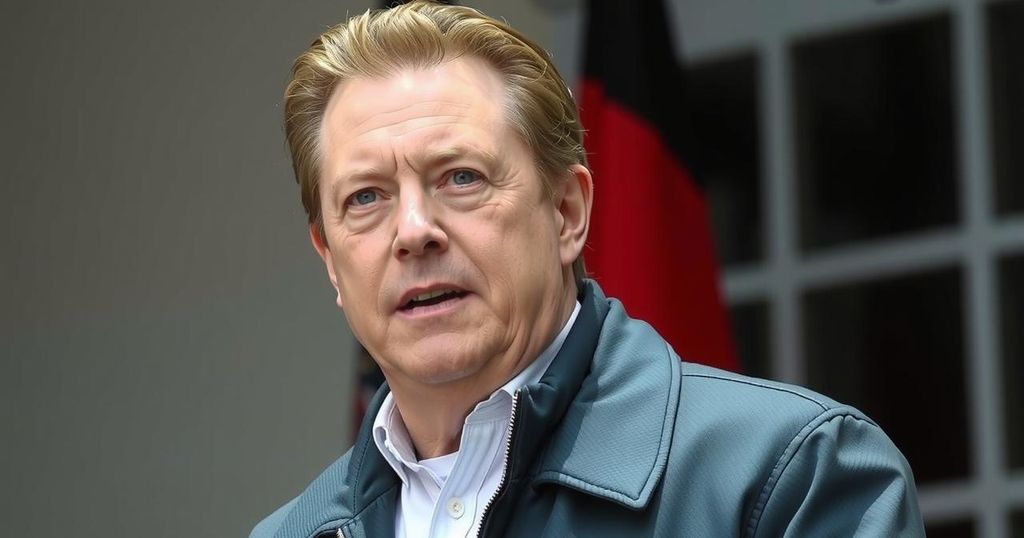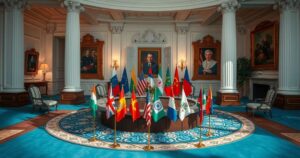Germany Accuses Elon Musk of Election Interference by Supporting AfD

Germany has accused Elon Musk of trying to influence its elections by endorsing the far-right AfD party. His public statements have drawn significant criticism from German officials, who emphasize concerns over foreign meddling in domestic politics. The AfD is gaining popularity ahead of elections scheduled for February 23, amidst a broader discussion regarding right-wing extremism in Germany.
The German government has accused Elon Musk, the billionaire CEO of Tesla and SpaceX, of attempting to sway its upcoming parliamentary election through his public endorsements of the far-right Alternative for Germany (AfD) party. Despite the German government’s characterization of Musk’s assertions as “nonsense,” they have voiced concerns over his influence. Musk justified his actions by referencing his significant investments in Germany, asserting that he is entitled to express his opinions on political matters. His calls for deregulation and criticism of Chancellor Olaf Scholz have intensified the scrutiny on his political interventions.
As Germany gears up for the elections on February 23, following the dissolution of Chancellor Olaf Scholz’s coalition, the AfD is gaining traction, currently holding second place in opinion polls. The political landscape remains fraught as mainstream parties have pledged not to affiliate with the AfD due to its being monitored for right-wing extremism. The contentious nature of Musk’s involvement has been publicly condemned by several German politicians who liken his approach to that of leaders like Vladimir Putin.
Germany is preparing for a parliamentary election amidst a backdrop of political upheaval, particularly after the collapse of Chancellor Olaf Scholz’s coalition government. The upcoming election has garnered considerable attention not only domestically but also internationally, as foreign figures, including Elon Musk, voice their opinions on political matters. The rise of the AfD party, which is suspected of harboring right-wing extremist elements and operates under surveillance, complicates the political dialogue in Germany as other parties navigate their responses to the rising influence of this faction.
In summary, Elon Musk’s endorsements of the AfD have prompted significant backlash from the German government and political leaders, who are concerned about foreign interference in their electoral processes. Despite Musk asserting his right to engage in German politics due to his investments, his actions have been met with widespread disapproval. This incident highlights the complexities of political influence in an increasingly interconnected world, especially as Germany heads into a critical election.
Original Source: www.cnn.com






